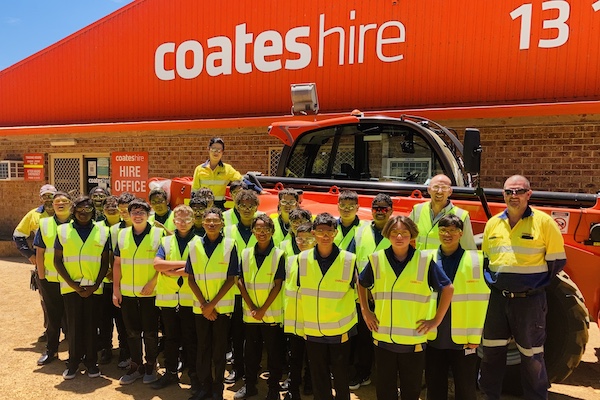Coates Unveils “Innovate” Reconciliation Action Plan
In collaboration with Reconciliation Australia, Coates, Australia’s leading equipment hire and solutions provider, has unveiled its second Reconciliation Action Plan (RAP) – Innovate RAP.
The Innovate RAP commences from this month and will focus on developing and strengthening relationships with First Nations peoples, engaging Coates’ employees and stakeholders in reconciliation, and developing and trialling strategies that empower Aboriginal and Torres Strait Islander Peoples.
Prior to developing the Innovate RAP, Coates consulted with Reconciliation Australia as well as its key external partners including the NSW Indigenous Chamber of Commerce, Kinaway Chamber of Commerce in Victoria and the Noongar Chamber of Commerce and Industry in Western Australia, the Clontarf Foundation and their own internal RAP committee.
“Reconciliation is a journey for all of us as Australians – as individuals, families, communities, organisations and importantly as a nation,” said Murray Vitlich, CEO, Coates. “At the heart of this journey are relationships between the broader Australian community and Aboriginal and Torres Strait Islander peoples.”
INNOVATE RAP TO FOSTER INCLUSION, REPRESENTATION AND EDUCATION
The Innovate RAP details a number of initiatives the company will undertake, focusing on three key areas:
- Cultural educationaimed at improving the cultural competency across the organisation. Coates aims to provide formal cultural awareness training to over 90 per cent of the workforce by 2024.
- Increasing employee representation of First Nations people within Coates, with a target participation rate of 10 per cent of apprentices to identify as Aboriginal and Torres Strait Islander and a 2.5 per cent employee overall participation rate – both by 2025.
- Increasing Coates’ First Nations supplier pool, as well as supporting new Indigenous enterprises by targeting specific business categories. Coates has committed to achieving business procurement targets of five per cent of non-capital annual spend across three business categories by 2024.

